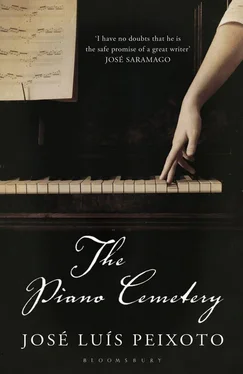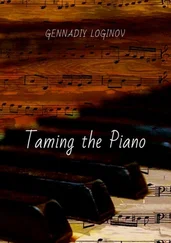burns
was starting to warm up. Our steps were the scraping sound of boots on grass. We were just about to leave when a man came running towards us and held my father by an arm. It was only much later that I learned he was the man who looked after the park. At that moment I just looked at my father, I looked at the man and didn’t understand. I came up to just above my father’s waist. I raised my head and saw him apologise. I saw the man grab him by the arm, without looking at him, as if he couldn’t hear him. And my father asking him to let us go. And the man gesturing to a lad who was passing and telling him to go fetch a policeman. And my father asking him not to do that. And the man not looking at him, not hearing. And my father putting the bucket down on the ground. And time held back by silence. And me, little, my fishing-rod in one hand, the tin of worms in the other and a hat wedged on to my head.
Kilometre twenty-nine
the sky comes undone over Stockholm
child
the sky comes undone over Stockholm
not yet born
arms lighter, because they’ve stopped existing. And I can’t feel my legs. In my body, there’s some other thing that sacrifices itself in place of my body. Maybe it’s what I’m thinking. Like when I close my eyes and I still exist. When I close my eyes, cover my ears and I still exist. Maybe it’s this shapeless matter that’s burning up, this shadow. Hands hurl themselves out to touch it and to pass through it, like passing through flames. Words hurl themselves out to name it, but they don’t stop, they go right through its infiniteness. And there’s peace in the chaos of my movements, my legs, my arms, unbalancing, free, lost, desperate. And there’s silence in the roaring that surrounds me, grave and constant and deafening. There’s silence in the voices, in the applause, that are thrown towards me from one side of the road and the other, that I pass through as though breaking through fine tangled bushes, as though passing through a cloud of birds. I no longer have any doubts. I am strong and serene and immortal. I no longer have any doubts.
child. I feel you in the palm of my hand, under the skin of your mother. In her eyes, I see yours.
on the road. My running shoes land crooked on the road. Feet to the side, crooked, unable to recognise the surface of the road.
wooden steps. Maria opens the door for me. My mother. Ana. Íris. Maria saying to me, ‘My little boy.’ Me looking at each of their faces.
notes played on the piano, now heaped up inside me, and us, lying on the rug, our bodies
my mother, mother, my mother, proud of me running in the Olympic Games, but silent, only her face. Ana and Íris around me, happy — happy children. And Maria, my sister, like when she was young, like when our father died, saying to me, ‘My little boy.’
father
father
Kilometre thirty
fall over myself — stones — my cheek to the road, the world cloudy through my eyes, my breathing inhaling dust, my legs burnt, embers, my arms burnt, my heart, my chest breathing
time passes in Benfica, silence passes over the piano cemetery
I must go and meet my father.
Piano notes come out of the wireless. Who is there, far away, playing them? The white shining surface of the refrigerator. The white shining surface of the tiles. My wife knows this time of day through her own skin. The afternoon is drawing to its close, as it does every day. It’s Monday, maybe this is why my wife remembers ‘every day’ better. Monday is a day my wife associates with ‘every day’. If someone in a conversation says ‘every day’ my wife thinks of an infinite succession of Mondays. Friday is the eve of the weekend, which is why it’s a different day. Saturdays and Sundays are different days. Tuesdays, Wednesdays and Thursdays are particular days on which things happen that are particular to Tuesdays, Wednesdays and Thursdays. Mondays are regular, anonymous days. They are every day.
This is why my wife, even if she doesn’t remember, knows, recognises this time of day, without having to look at the clock on the kitchen wall, without having to pay any attention to the sharp whistles that interrupt the piano notes on the wireless. It’s why weeks, months, seasons exist. It’s why my wife knows this time of day by seeing it and feeling it and breathing it every day — an infinite succession of Mondays.
Perhaps. My wife doesn’t know if Maria will be the first to arrive, holding Ana’s hand, the voices of our grandchildren meeting and shouting, with her work problems and talk, with the life and moods of the six, seven women who work around her, chained to their sewing machines; or whether Maria’s husband will arrive, dispirited, the silence of the house almost unchanged, Íris walking barefoot along the hall runner and meeting him without surprise.
My wife knows. Leaning on the kitchen sink, she dries her arms with a cloth and thinks. Yesterday they arrived from the workshop. Yesterday: Maria, defeated, coming up the stairs — her feet heavy on the steps — her body hoisted up by her arm on the banister. Yesterday: our granddaughters, vaguely understanding everything. Yesterday: my wife there, but far away. Her body there, her presence if requested, but the words that populated her, the images she shared with no one, very far away.
And when they opened the door, Maria’s husband was a ghost amid the shadows of the house. He didn’t greet anyone, didn’t speak, didn’t say sorry to Maria. My wife put down the suitcase she had brought and went into the kitchen. Ana and Íris went to play in the living room. Maria walked the corridors and the rooms as though it were a necessary thing to do, as though she were doing something other than trying to give her husband a chance to talk to her.
At the dinner table he seemed sad. He didn’t look at anyone. His face was a memory of other days. Then between one moment and the next Maria said something to him. She spoke naturally, as though nothing had happened, as though she no longer remembered, as though she’d forgiven him, as though it didn’t matter. Her husband replied with a syllable. She spoke again — a question about his answer. He replied with two syllables, a pause and then another syllable. She spoke again — another question. He replied calmly. And so the evening went on. The children laughed when they found some detail funny. Maria was the same daughter and wife and mother as on other nights. As though nothing had happened. They were already all asleep when my wife, alone, set up the iron couch in the dining room, stretched out the sheets, put the pillowcase on to the pillow, lay down on to a groaning of springs and, after some time that she doesn’t remember, fell asleep.
Íris is in the living room. Leaning on the sink, my wife wipes her hands on a cloth and she knows this time of day through her own skin. The surface of the windowpanes. The surface of the tabletop. My wife hears the sound of the key going into the lock. Piano notes come out of the wireless. Who is there, far away, playing them?
‘Grandad is loveliest of the world,’ said Elisa, sitting on a piece of wood on the carpentry shop floor. It must have been summer, because the sun had been very hot and the cooler time of day was slowly beginning. I stopped what I was doing to look at her with a smile. Elisa was three, four years old. My Marta still lived in the house near the workshop and she was out on the patio doing something with a straw hat on her head. It was Saturday.
‘Grandad is loveliest of the world,’ said Elisa, when I was not yet sick and I didn’t know that my time was seeping away. Elisa was three, four years old and she’d wanted to come and be with me. I was making a door frame or a window frame or something when I saw her come in, so very little, her body still unsteady from climbing the stairs. For a moment her body was sketched by the sunlight. She sat down on a piece of wood on the carpentry shop floor.
Читать дальше












